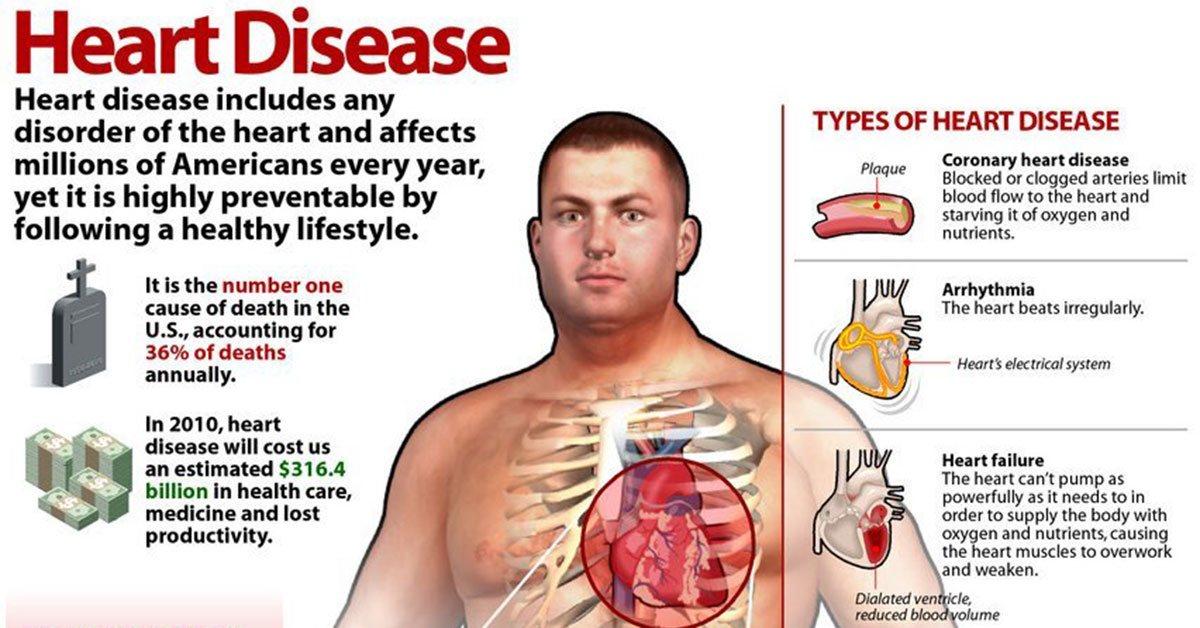- Published on
What Is Heart Disease?
- Authors
- Name
- Jake Konigsberg
- Role
- Founder
Heart disease is an umbrella term referring to many different heart-related conditions. Heart disease includes heart conditions in which there are diseased vessels, structural problems, or blood clots. Some of the more common forms of heart disease include coronary artery disease (damage to the heart’s major blood vessels), high blood pressure (force of blood flowing through blood vessels is too high), and congestive heart failure (heart does not pump blood as well as it should).
Due to the breadth of diseases categorized as heart disease, there are many different causes. Some causes include chronic illnesses such as kidney disease. For example, with kidney disease, the kidneys do not work very well to filter the blood, so the heart needs to work harder to constantly pump blood to the kidney which could lead to heart diseases such as high blood pressures. Other causes for heart disease can be genetic mutations or physical deformities. For example, 50% of people with down syndrome, which is caused by an extra 21st chromosome, also have congenital heart disease (heart defects which develop before birth). There are also environmental and lifestyle causes. The most widely discussed causes of heart disease are lifestyle such as a too high salt diet, obesity, and high cholesterol. For example, with obesity, excess weight can lead to the build-up of fatty material in the arteries which can restrict blood flow leading to heart attack (a form of heart disease). Environmental causes are less widely discussed but are still important and include air pollution and excessive heat.
